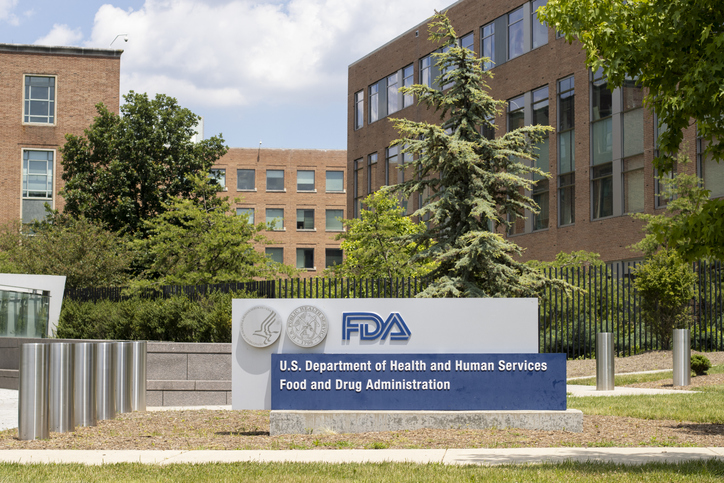Thymidine kinase 2 deficiency (TK2d) is an ultra-rare (1.64 cases per 1,000,000 people) often fatal, genetic mitochondrial disease characterized by progressive and severe muscle weakness. Those experiencing initial symptoms on or before the age of 12 years face a high risk of premature death (often occurring within three years after symptom onset). It is a debilitating disease with a severe impact on daily living, including one’s ability to walk, eat, and breathe independently and no previously approved treatment options beyond supportive care.
This week, the U.S. Food and Drug Administration (FDA) approved UCB’s KYGEVVI (doxecitine and doxribtimine), the first and only treatment of thymidine kinase 2 deficiency (TK2d) in adults and pediatric patients with an age of symptom onset on or before 12 years. This approval is based on data which showed KYGEVVI reduced the overall risk of death from the start of treatment by 86%.
“It’s hard to overstate the importance of this FDA approval for those diagnosed with TK2d. This is an ultra-rare disease community in dire need of treatment options. For too long, caregivers and their families have had to endure the burden of this disease,” said Kristen Clifford, United Mitochondrial Disease Foundation President and CEO. “Having the first-ever FDA-approved therapy for TK2d in this patient population not only meets a critical medical need—it represents something greater—hope for the future.”
KYGEVVI is a combination of doxecitine and doxribtimine—both pyrimidine nucleosides. Administration of KYGEVVI is intended to incorporate the pyrimidine nucleosides, deoxycytidine and deoxythymidine, into skeletal muscle mitochondrial DNA. This action restores mitochondrial DNA copy number in TK2d mutant mice.
The KYGEVVI approval is supported by safety and efficacy data from one Phase II clinical study, two retrospective chart review studies, and an expanded access use program. These studies included a total of 82 unique patients treated with KYGEVVI or pyrimidine nucleosides with an age of TK2d symptom onset ≤12 years. Efficacy was assessed by comparing overall survival in these pediatric and adult treated patients to an external control group of untreated patients who were matched to treated patients using age of TK2d symptom onset (≤ 2 years or >2 to ≤ 12 years). A total of 78 matched pairs were identified. The results showed that survival time from treatment start was improved; treatment reduced the overall risk of death from treatment start by approximately 86% (95% CI: 61%, 96%). Of the 78 treated patients included in the survival analysis, the median age of TK2d symptom onset was 1.5 years (range: 0.01 to 12 years). The median duration of treatment was four years (range: 1 day to 12 years) and the median dose received was 762 mg/kg/day (range: 260 to 800 mg/kg/day).
The most common adverse reactions (incidence ≥5%) are diarrhea, abdominal pain (including abdominal pain upper), vomiting, alanine aminotransferase increased (ALT), and aspartate aminotransferase increased (AST).
“I’ve been studying mitochondrial diseases for more than three decades and have witnessed firsthand the impact TK2d has on patients and their families. We have been waiting for an approved treatment for many years, and this approval marks a significant milestone in how we can support and manage this debilitating condition,” said Michio Hirano, MD, professor of neurology and chief of the Division of Neuromuscular Medicine at Columbia University Irving Medical Center.
A regulatory review of doxecitine and doxribtimine is currently underway by the EMA (European Medicines Agency), and further regulatory submissions are planned. KYGEVVI is currently not approved for use in any indication by any regulatory authority outside of the U.S. In the U.S., KYGEVVI received Orphan Drug, Breakthrough, Priority Review, and Rare Pediatric Disease designations from the FDA. With this approval by FDA, UCB was awarded a Rare Pediatric Disease Priority Review Voucher (RPDPRV) redeemable for a priority review for a future marketing application.
UCB expects KYGEVVI to be commercially available in the U.S. in Q1, 2026. This marks the third FDA approval in rare disease for UCB in less than three years. The KYGEVVI approval is supported by safety and efficacy data from one Phase II clinical study (Trial 1, (NCT03845712), two retrospective chart review studies (Study 1 and Study 2, NCT03701568 and NCT05017818 respectively), and an expanded access use program (NCT06590493).

